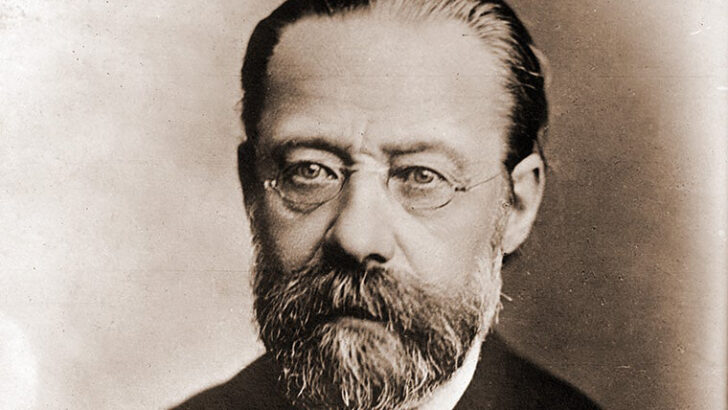As the main work in tomorrow’s NSO concert at the NCH will be Shostakovich’s 10th Symphony I had intended this column to be principally devoted to the Russian master. However, taking pen to paper I realised that tomorrow’s opening work is by Czech composer Bedřich Smetana born 1824, died in 1884 with this year commemorating the bicentenary of his birth.
Smetana came from the Bohemian city of Litomyŝl. Recognising his exceptional musical talents early on, his parents encouraged his violin and piano lessons and the chap gave his first public concert when he was six. Aged fifteen he travelled to Prague and began participating in that city’s lively round of musical activities.
Despite the attention Smetana was enjoying in Prague his father feared his son’s ‘proper’ education was being neglected and ordered the young lad home. Smetana obeyed and a number of years elapsed before he returned to Prague. Mixing in its varied musical milieu, he was introduced to the influential Liszt, Berlioz and Robert and Clara Schumann.
Smetana’s piano music expressed the popular virtuosic tendencies of the time but as the pecuniary rewards hardly kept ‘the wolf from the door’, Smetana set up an institute for piano playing in 1848 and became a very successful teacher.
His piano music began to be widely performed and in addition he became a conductor in 1855. However, tragedy struck the same year when his eldest daughter died at the age of four. Smetana dedicated his Piano Trio in G minor – one of his most powerful and personal works – to her memory.
Deciding to travel, Smetana moved to Göteborg in Sweden where he established another piano institute and became a concert organiser.
Crescendo
With a change in the political atmosphere in the Czech lands, Smetana returned to Prague in 1862 and the ensuing decade or so was the most momentous period in his life.
With the opening of the Czech Provisional Theatre in 1862 Smetana was invited to become its conductor some time later and it was there that his eight operas, including The Bartered Bride, had their first performances.
As Maynooth music professor Patrick Devine reminds us in the latest edition of Sound Post magazine, Smetana’s comic operas celebrate rural village life as well as having colourful casts of lovers, opposing parents, matchmakers and circus performers. The more serious works, among them Dalibor (1870) and Libuŝe (1872), based on historical figures, are to be found in the realm of grand opera.
In the early 1870s Smetana developed hearing difficulties with a constant ringing sound in one ear. He incorporated this discomfort into his autobiographical First String Quartet written in 1876 and entitled From My Life.
Sadly with his health deteriorating further the composer was obliged to enter an asylum in Prague where his died in 1884. As professor Devine points out Smetana’s greatest achievement was to create in his music a national style that was distinctive and original, with which his compatriots identified and which would profoundly influence the leading Czech composers of future generations not least Dvořák, Janáček and Martinů.


 Bedřich Smetana.
Bedřich Smetana. 